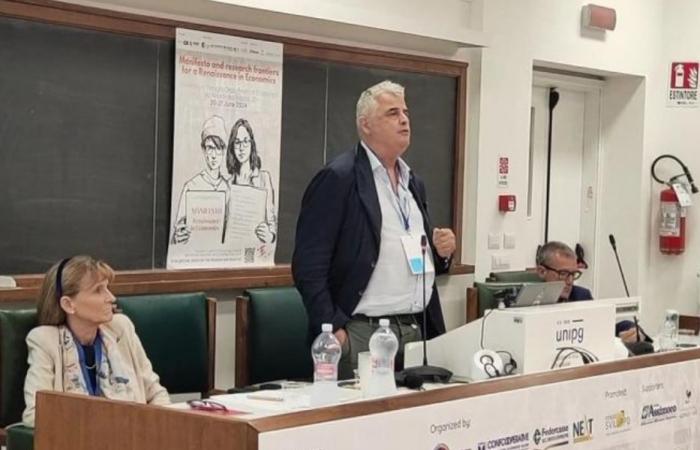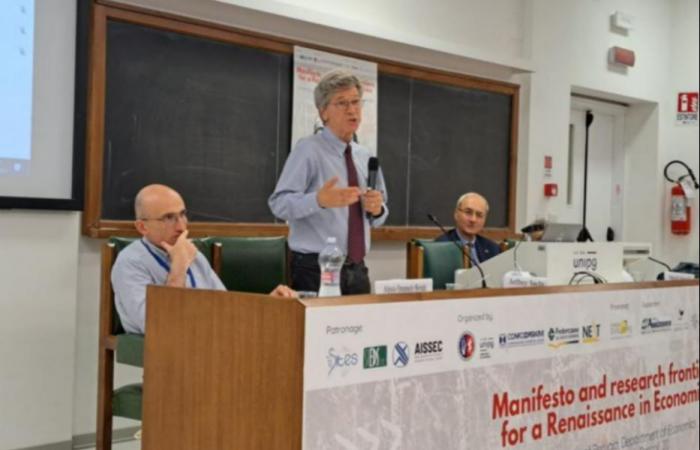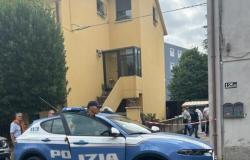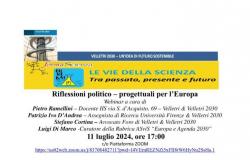Beyond homo oeconomicus, so focused on his own personal interests that he doesn’t notice his short-sighted vision. Beyond the logic of profit maximization. Beyond the traditional vision expressed by GDP, closed to indices more sensitive to real well-being. Beyond the state-individual dichotomy, focusing on concrete paths of subsidiarity. Beyond clustered knowledge, showing off the generative potential that only an interdisciplinary approach to big questions can unleash.
There is a profound interweaving of questions of content and method within the five cornerstones of the Manifesto for a new economy at the center of the meeting which, on Thursday and Friday, brought together over two hundred teachers, researchers, entrepreneurs and students in Perugia. Pulling the strings are the working group that has animated the Civil Economy Festival of Florence for years and the ten Italian academics, led by Leonardo Becchetti, the first signatories of the document: membership has now reached 305, and the objective the point is to broaden the audience abroad, to the academic community but not only.
Economists and entrepreneurs in the classroom in Perugia – .
Because among the fixed points there is the interdisciplinarity of values and knowledge, which opens up the audience of potential interested parties well beyond academics. «The world of the old economic paradigm produces disasters and risks leading us to catastrophe because its premises are defective», summarizes Becchetti: «However, if we put on the right glasses we discover that society is also made up of civility, social participation, more ambitious enterprises than not they only look at profit but also at the social and environmental impact.”
Simple trajectories to escape from a complexity that seems to have overwhelmed and paralyzed society. In Italy, in Europe, in the world. “It’s time to think about growth differently and above all to combine it with the concept of development, not in an alternative but complementary way”, he underlined Jayati Ghoshprofessor at Jawaharlal Nehru University.
Robert H. Frankprofessor at Cornell University, placed emphasis on the great fiscal issue, recalling that “the nations in which people live best are those in which taxation on the rich is highest”.
A moment from the two days in Perugia – .
The strongest encouragement came from Jeffrey Sachsof Columbia University, one of the most listened to economists in the world, capable over the years of moving from the “dominant” paradigms, the so-called mainstream ones, to the theorization of sustainable development: «The Manifesto is a huge initiative, the current economic model doesn’t work , therefore we need a new one, to bring prosperity and well-being, to address the environmental crisis, to bring social justice and peace to the world.”
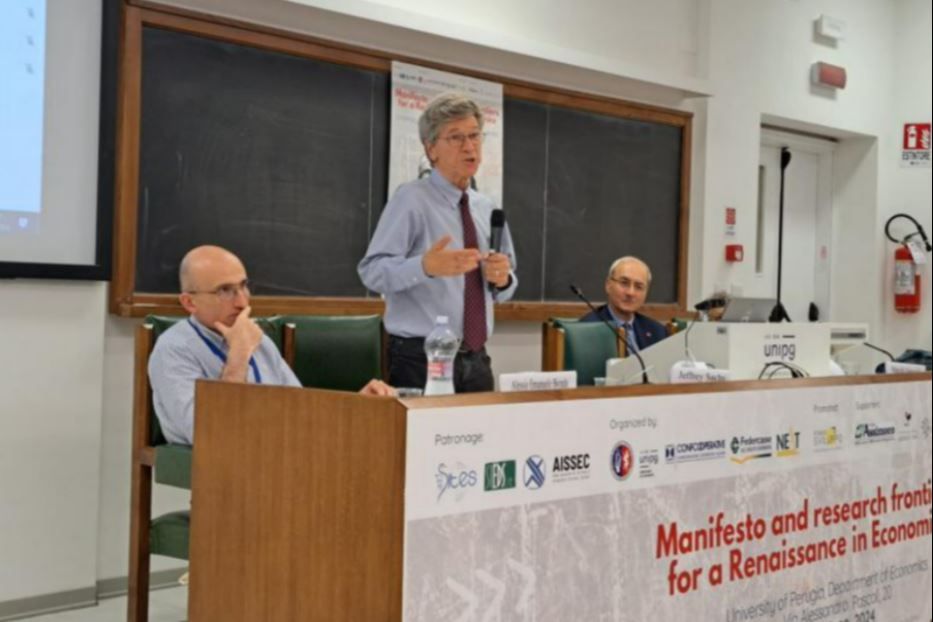
A moment from the two days in Perugia – .
Sachs signed and elaborated each of the five points, closing with an operational provocation: «We need interdisciplinarity, played in a problem solving key». Translated: high and new look, feet well anchored to the ground. With a suggestion: bring the Manifesto to the second edition of the World Summit for Sustainable Development, convened by the UN for next year. Meanwhile, at the beginning of October, we will start again from the Festival of Civil Economy in Florence.

